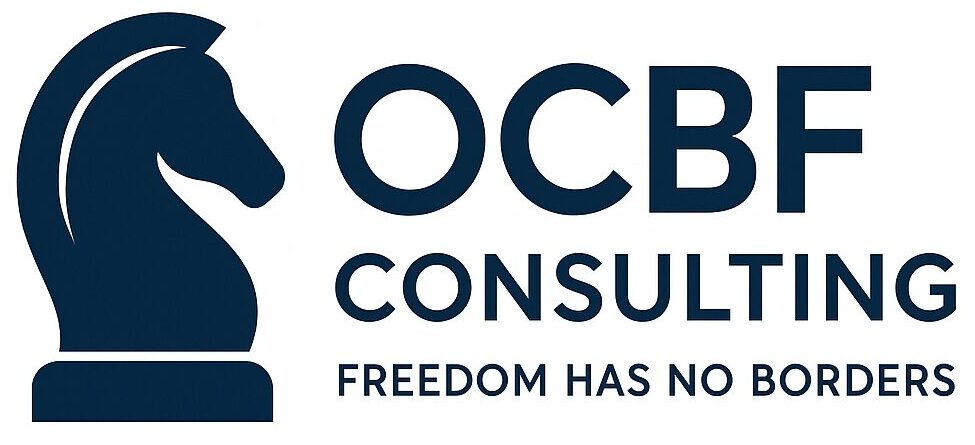Mark Wilson thought he was safe. He had done what every business guide, lawyer, and YouTube guru said to do: form an LLC. It had its own bank account, a separate EIN, and even a registered agent in Wyoming. When he signed contracts, he proudly wrote “Mark Wilson, Manager, Horizon Dynamics LLC.”
Then came the lawsuit.
A dispute from an old business deal spilled over into his personal life, and before long, a court order was freezing his personal accounts—including his ownership interest in Horizon Dynamics. His “limited liability company” hadn’t failed him; it had done exactly what it was built to do. The problem was simpler, and more dangerous: he owned it.
That single line on the operating agreement—Member: Mark Wilson—was all it took for the protection to unravel.
The Myth of the Single-Layer Shield
For years, small business owners have been sold on the LLC as the ultimate barrier between personal and business risk. It’s true, as far as it goes. The LLC protects you from the company’s liabilities. What it doesn’t do is protect the company from your liabilities.
If you’re sued personally—over a car accident, a personal guarantee, a divorce, or a creditor claim—your membership interest in the LLC becomes an asset on the table. A determined creditor can pursue it, seize distributions, or disrupt operations through charging orders.
The protection is one-way. The walls face outward, not inward.
That’s why the truly sophisticated structure doesn’t stop with the LLC. It adds a second skin—a trust.

The Trust as the Missing Layer
At its core, a trust is simple. It’s a legal container. One person (the settlor) places assets into it. Another (the trustee) manages them for the benefit of others (the beneficiaries). It’s one of the oldest and most flexible instruments in Anglo-American law—an arrangement built on separation of ownership and control.
When you make your trust the owner of your LLC, you change the game. You no longer personally hold the membership units; the trust does. Your name disappears from the ownership line, replaced by “The Wilson Family Trust” or “The Horizon Asset Protection Trust.”
You haven’t hidden the company—you’ve re-engineered who owns it.
Think of it this way: the LLC is the operating business, busy in the marketplace. The trust is the vault that holds the key. One runs, one protects. Together, they form a system that shields both directions—business from personal risk, and personal life from business fallout.
Control Without Exposure
A common fear surfaces at this point: “But if the trust owns my LLC, do I lose control?”
The answer is no—if you structure it right.
The trick lies in separating ownership from management.
The trust becomes the member of the LLC, but the LLC’s operating agreement names you as the manager. That means you still sign checks, make deals, and run the business. You just do it as an appointed manager acting for the trust, not as an individual owner.
The trust agreement can further cement your influence through reserved powers or a protector role, allowing you to veto major changes or replace trustees without collapsing the legal separation.
“Nothing changes in your day-to-day life,” says one estate attorney. “The invoices still have your name. The difference is that, legally, you’re steering the car—you don’t own it.”
It’s control without exposure, management without personal ownership.
When Two Veils Are Better Than One
Here’s where it gets powerful. In the asset-protection world, layering an LLC inside a trust is like running a double firewall. Each layer stops a different kind of fire.
- If a customer or employee sues the business, the LLC isolates the damage.
- If a creditor or litigant comes after you personally, the trust blocks them from reaching your LLC interest.
- If you pass away, the trust prevents probate from freezing the company’s accounts.
Together, the structure turns reactive defense into proactive design. It’s not secrecy—it’s architecture.
In states like Wyoming and Nevada, where charging-order protection is already strong, placing the membership inside a well-drafted trust (especially an irrevocable or offshore one) makes the structure exponentially harder to penetrate. A judgment creditor might obtain a charging order, but they can’t compel distributions, fire the manager, or sell the trust’s interest.
The Offshore Banking Quick Start Guide is a 70+ page, no-fluff blueprint that takes you from “I don’t know what to do” to submitting a bank-ready offshore application with confidence.
Get the Offshore Banking Quick Start Guide ($9)
In plain English: they can see it, but they can’t touch it.

The Tax Reality—What Most Articles Miss
Here’s where most internet guides oversimplify. They tell you, “Put your LLC into a trust—it’s tax-free.” That’s not always true, and understanding the nuance matters.
In most cases, transferring your LLC membership interests into a revocable living trust isn’t a taxable event. The IRS treats it as though you still own it for income-tax purposes; you keep filing the same Schedule C or partnership return. The change is legal, not fiscal.
But once you move into irrevocable or asset-protection trusts, the landscape shifts. The trust may need its own tax ID, and its own filing. You might trigger gift-tax considerations if you relinquish ownership entirely.
If your LLC has elected S-corporation status, additional rules apply: only certain types of trusts—QSSTs or ESBTs—can hold S-corp shares without breaking election status. A careless transfer can accidentally destroy your company’s tax classification overnight.
That’s why the smartest operators plan with their CPA and attorney in sync, ensuring every document aligns. The structure is powerful, but precision is non-negotiable.
Privacy: The Quiet Shield
One overlooked benefit of trust ownership is anonymity. In most states, LLC member names appear on public record. Type a company into the Secretary of State’s database and you’ll often see the owner’s name in seconds.
When the member is a trust, that public link disappears. The listing shows only “Horizon Family Trust,” not “Mark Wilson.” The paperwork traces back to the trustee or registered agent, not the individual behind it.
In an age of data breaches, cyber-stalking, and frivolous lawsuits, that privacy is priceless. It’s not about hiding from taxes or accountability—it’s about not painting a target on your back.
And when combined with privacy-friendly jurisdictions like Wyoming, New Mexico, or Delaware, the trust-owned LLC becomes nearly invisible to casual searches while remaining fully compliant with new transparency laws like the Corporate Transparency Act.
Governance: Where Law Meets Logistics
A trust-owned LLC lives at the intersection of two rulebooks: trust law and company law. The trust’s governing document must explicitly allow ownership of business interests. The LLC’s operating agreement must allow entities—like trusts—to be members.
When those gears mesh, the structure runs smoothly. The trustee signs for ownership decisions; the manager (often still you) runs operations. If the trust has multiple beneficiaries—say, family members—the trustee can direct distributions from the LLC’s profits accordingly, keeping everything consistent with the trust’s terms.
It’s like wiring together two systems so that one feeds the other—tax filings, banking, and compliance all align when drafted correctly.
The Offshore Banking Quick Start Guide shows you exactly what documents to prepare, how to structure your KYC packet, and how to present yourself as a low-risk, highly bankable client.
Download the Guide ($9)
This is the step many DIY planners skip, and it’s where most structures fail. Good legal drafting is invisible, but its absence is always loud.
How to Make the Transition to a LLC Owned By a Trust
Transferring an existing LLC to a trust sounds daunting, but it’s straightforward when done right.
You’ll only need to follow a handful of steps, all of which can be completed in a week with proper documentation:
- Amend the LLC’s operating agreement to allow the trust as a member and list it as the new owner.
- Execute an Assignment of Interest transferring your membership units from you to the trust.
- File amendments with your state’s Secretary of State if ownership details are recorded publicly.
- Notify your bank and update the EIN records if required.
- Keep copies of all signed documents in both the LLC and trust records.
Once complete, you’ll operate exactly as before—signing as “Manager” rather than “Member.” The business doesn’t feel different, but legally, you’ve just shifted to an entirely new level of protection.

The Pitfalls that Pierce Both Veils
Every structure has weak points, and this one’s no different.
Some business owners transfer their LLC to a revocable trust and assume they’re bulletproof. They’re not. Revocable means reversible, and courts treat such trusts as extensions of the owner’s identity—perfectly transparent to creditors.
Others forget to update contracts, licenses, or insurance, leaving the LLC still tied to their personal name. One missed signature can blur the line between individual and entity, inviting a judge to “pierce the veil.”
And the classic error: failing to amend the operating agreement. Many LLC documents prohibit transferring membership to an entity without consent. Ignore that clause, and the transfer can be void, undoing the entire plan.
These are fixable mistakes—but only if you spot them before the storm hits.
The Cost Equation
A domestic living trust can cost between $3,000 and $5,000 to set up. A robust asset-protection trust—like those in the Cook Islands or Nevis—might run $10,000 to $20,000. Amending your LLC paperwork adds a few hundred more.
Those numbers can sound high—until you compare them with a single legal dispute. One frozen account, one judgment, or one probate case can easily consume six figures.
As one attorney quipped, “You can pay a planner once, or a creditor forever.”
It’s not a luxury. It’s insurance in legal form.
Succession Without Probate
Perhaps the most elegant benefit of a trust-owned LLC is what happens when you die: nothing.
No court order, no probate freeze, no administrator fumbling through your affairs. The trustee simply continues managing the trust; the business keeps operating.
Contrast that with an LLC owned directly by an individual. Upon death, the membership interest becomes part of the estate. The bank accounts freeze until probate concludes. Contracts stall, payroll stops, and your heirs face months of legal red tape.
With a trust in place, ownership never dies—it merely transitions.
“You don’t just leave a company,” says an estate planner. “You leave continuity.”
Beyond Borders: Offshore Variations for an LLC Owned by a Trust
For those with significant assets or international exposure, the trust-owned LLC extends easily offshore.
A Cook Islands or Nevis trust can own a Wyoming LLC, combining U.S. operational credibility with offshore legal protection. The U.S. LLC serves as the domestic face for banking and compliance, while the offshore trust acts as the controlling member beyond U.S. court reach.
This hybrid structure is increasingly popular among high-net-worth individuals, crypto investors, and global entrepreneurs. It keeps assets in motion but out of easy reach.
The Big Picture: Protection by Design
In the end, the trust-owned LLC isn’t a loophole—it’s evolution. The concept embodies what modern asset protection is really about: design, not evasion.
When you own your LLC directly, your name, your liabilities, and your legacy are tied together in one fragile knot. When your trust owns it, that knot becomes a weave—stronger, more flexible, and far harder to cut.
Mark Wilson learned that the hard way. After losing partial control of his first business, he rebuilt under a new structure: The Horizon Trust owns Horizon Dynamics LLC. When new lawsuits came knocking years later, they stopped at the threshold.
He smiles now when he tells the story. “It’s funny,” he says, “I used to think forming an LLC meant I was protected. Turns out, I just needed one more layer.”
Because in the modern economy, the smartest ownership is invisible.
OCBF Consulting LLC provides expert insights on asset protection, trust planning, and offshore strategy. Got an issue to be solved? Speak to us now!









